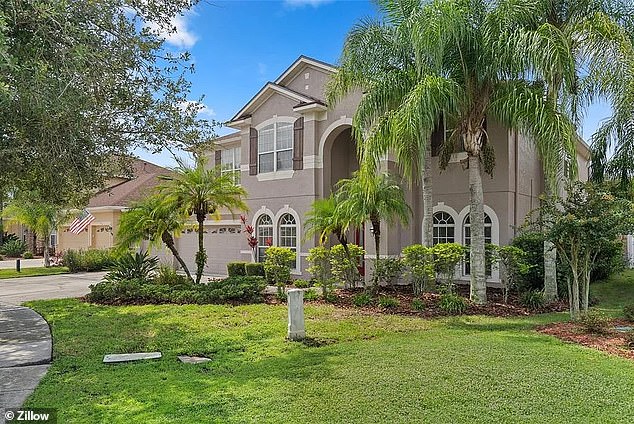A years-long trend of Americans flocking to Florida in search of sunny weather and low taxes is coming to an abrupt end now that real estate demand has completely plummeted.
Relatively recent newcomers from states like New York and California are listing their homes for a variety of reasons, including the increasing number of extreme weather events the peninsula state is experiencing.
This year alone, Florida will have been hit by at least three major storms, including hurricanes Debby, Helene and soon Milton, which is currently heading toward its west coast as a Category 4 storm.
Anthony Holmes, originally from Virginia, moved to Florida in 2021 like more than a million people nationwide. But now that he has to return to Virginia, it is impossible for him to sell his house.
“I can’t unload the thing,” Holmes said. The Wall Street Journal. ‘In eight months, I have not received any offers. No one even showed up to the open houses. Nobody.’
Anthony Holmes lives in a five-bedroom home in a gated community in Tampa (Pictured: A five-bedroom, two-bathroom home in Tampa selling for nearly $800,000)
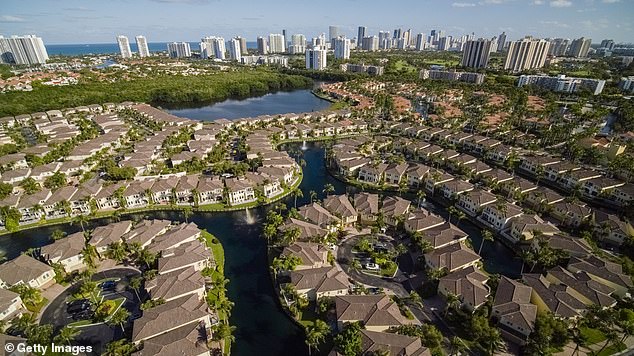
High angle view of Aventura, Golden Beach and Sunny Isle Beach, Florida, on a sunny spring day
Holmes lives in a gated community in Tampa, which is preparing for a possible direct hit from Hurricane Milton.
He paid $550,000 for the five-bedroom home before spending another $50,000 on solar panels and other interior renovations.
When he put his house on the market in February, he hoped to sell it quickly, but he just had no luck.
It has dropped the price five times and now stands at $583,900. He said he would be happy to break even at this point.
Holmes is certainly not the only one facing this, as some condo owners in Florida have been slashing prices by up to 40 percent in recent months.
It’s a notable change between 2021 and 2023, when Florida became the fastest-growing state by far. The Covid-19 pandemic allowed many people to work remotely for the first time, making the temperate climates of the southeastern US more attractive than ever.
Now, Florida faces excess housing inventory and declining demand, causing homes to stay on the market longer.
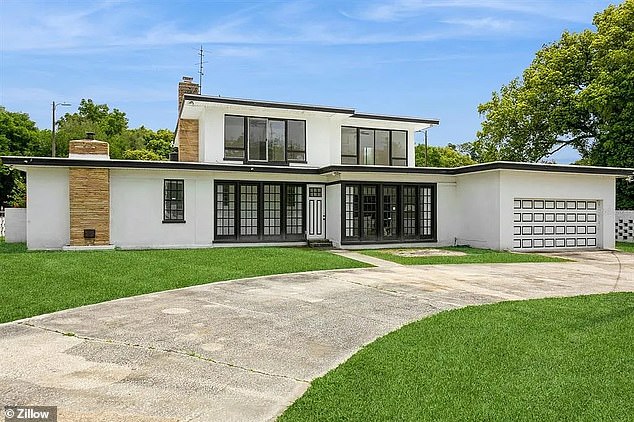
This home, also in Tampa, saw a $76,000 price cut on July 23 and has been on the market for a whopping 177 days.
Inventory of single-family homes and condominiums in Tampa, Orlando and much of the Space Coast increased more than 50 percent in August from a year ago. Over the same period, demand has fallen 10 percent or more in these areas, the Journal reported.
Demand has been declining due to rising insurance costs, which are inextricably linked to natural disasters, and high home prices.
Experts say prices, which in some areas are at record highs, have not caught up with buyer sentiment and expect a major correction around the corner.
“There’s definitely been a significant increase in inventory in recent years, and that sets us apart from other states,” Brad O’Connor, chief economist at Florida Realtors, told the Journal. “We could see some price deterioration in some areas.”
About half of the homes for sale in Tampa already experienced price cuts as of September 9.
People who already own homes in Florida and are trying to get rid of them are probably trying to avoid further increases in home insurance premiums, which have increased as much as 400 percent in certain areas.
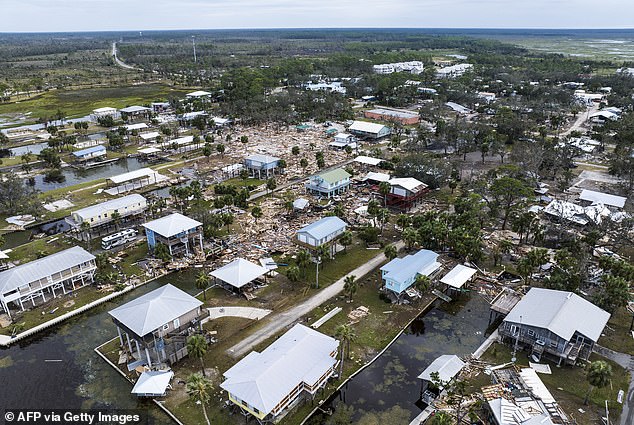
Hurricane Helene, expected to cause more than $15 billion in property damage, is sure to send premiums skyrocketing (pictured: An aerial view of damage after Helene in Horseshoe Beach, Florida)
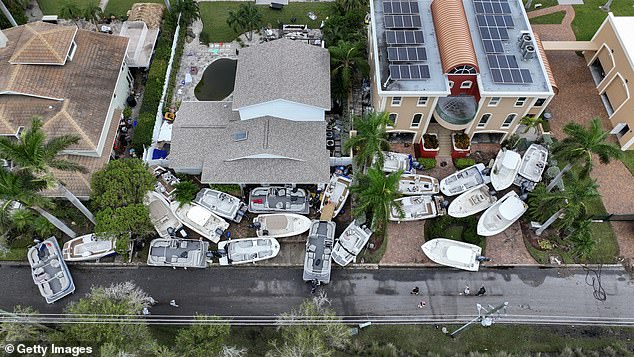
Pictured: Boats crash into homes and businesses on Treasure Island after Helene brought record storm surge to Florida’s west coast.
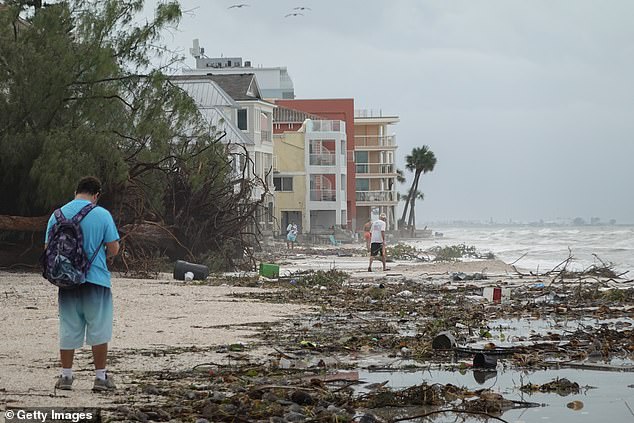
Trees and debris lay on the beach at Treasure Island as people walked after Helene’s landing.
Hurricane Helene, which is expected to cause more than $15 billion in property damage, is sure to cause premiums to skyrocket.
That’s not counting the damage that Milton will cause, as meteorologists believe it will bring the largest storm surge in a century.
As a result, Florida has become one of the easiest states to reach an agreement on a home, as long as you are willing to face the inherent risks.
Miami real estate agent Steven Kupchan told DailyMail.com in September that people are flocking to Georgia, Texas and the Carolinas.
“With the rise of remote work, some people who had moved to Florida for work are now considering moving to states with lower costs of living or more stable housing markets,” Kupchan said.
Florida’s condo market is also experiencing a slowdown, but for a completely different reason.
Following the 2021 Champlain Tower South collapse in Surfside that killed 98 people, state lawmakers passed legislation requiring all condo buildings three stories and taller that are 30 years old or older to undergo an inspection by from a qualified architect or engineer.
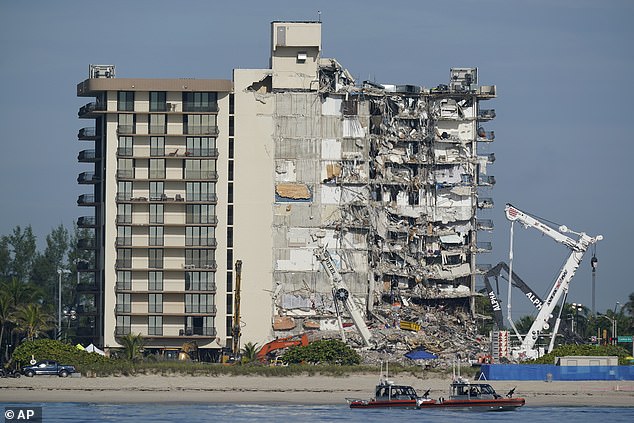
Pictured: The Champlain Tower South after its collapse on July 1, 2021
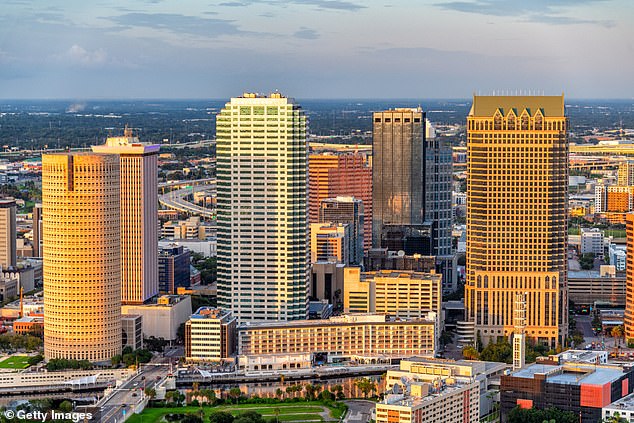
Many high-rise condos, like these in Tampa, will soon be subject to costly assessments thanks to the new law. The owners are trying to sell before the December 31st inspection deadline.
Yeah ‘substantial structural deterioration‘, the condo owner will have to pay for repairs and will need possibly hundreds of thousands of dollars to fix their property within a year.
The law, while well-intentioned, has resulted in a mad rush of homeowners listing their properties to avoid the December 31 inspection deadline.
Broker ISG World reports that condo units built 10 years ago or less have actually appreciated about 9 percent more today than last year, while units 30 years old or older are selling for 19 percent less that in 2023.
Many homeowners say they have to find buyers who will pay all cash because mortgage lenders don’t take on the risk.
At the Cricket Club condominium in North Miami, two-bedroom units that once cost $450,000 or more are now worth at least $200,000 after residents received an assessment of $134,000, the Journal reported.
Institutional real estate investors are also trying to dig themselves out of what appears to be a growing disaster.
In Tampa, Orlando and Jacksonville, institutional single-family home portfolios account for nearly one in 20 listings over the past two months, according to an analysis by Parcl Labs.
In those three markets, institutional operators own between 2 and 4 percent of the homes and have been net sellers for the past three months.
“When institutional investors exit a market, it can be very rapid,” Jason Lewris, co-founder of Parcl Labs, told the Journal. “If sales start to pick up, it could have a cascading effect on home prices.”

